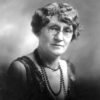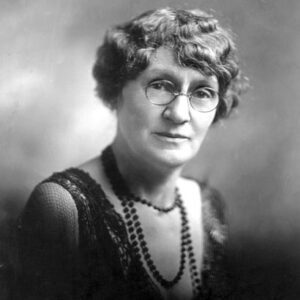calsfoundation@cals.org
League of Women Voters of Arkansas
aka: Arkansas League of Women Voters
The League of Women Voters (LWV), a nonpartisan political organization, encourages informed, active participation in government for all citizens. Although it never supports or opposes any party or candidate, it seeks to influence public policy through education and advocacy. The national League of Women Voters Education Fund is a 501 (c)(3) nonprofit organization that coordinates elections and educational outreach. The League of Women Voters of Arkansas first formed in 1920. However, it folded and reemerged two times, with the last incarnation forming in 1953, organized by Esther Clark. By 2012, in addition to the state league, there were also five local leagues, in Benton County, Fairfield Bay (Van Buren and Cleburne counties), Fort Smith (Sebastian County), Pulaski County, and Washington County.
The national league has its origins with the National American Woman Suffrage Association (NAWSA). In an address to the NAWSA convention in St. Louis, Missouri, in March 1919—over one year before the Nineteenth Amendment to the U.S. Constitution was ratified in August 1920, giving women the right to vote—NAWSA president Carrie Chapman Catt proposed a “league of women voters to ‘finish the fight’ and to aid in the reconstruction of the nation.” The league was originally formed within the NAWSA, with formal organization as the League of Women Voters in February 1920. Maud Wood Park was the first national president.
The structure of the league was designed to have three levels: local, state, and national. Before taking action on any issue, the league performs a study and then presents pros and cons to its members. Only after a consensus are the results of the study publicized and action taken.
Over the years, the national league has been involved in issues such as protection for women and children (such as advocating for the passage of the federal Sheppard-Towner Act of 1921, which provided federal funding for maternity and child care), rights of working women, food supplies, hygiene, women’s legal status, and American citizenship. During the Depression, the league worked for enactment of Social Security and the Food and Drug Acts. After World War II, the league helped the effort to establish the United Nations (UN).
In Arkansas, the league has focused on various issues of importance to both women and men, including election procedures (such as advocating for permanent voter registration instead of poll taxes), public education, revision of the Arkansas constitution, passage of the Equal Rights Amendment, water usage and the environment (such as opposing the damming of the Buffalo River), social policy (such as discrimination based on gender and issues surrounding incarceration), and sales tax on food. In the twenty-first century, the League of Women Voters of Arkansas continues its involvement in matters of public policy and education, with a few examples being natural gas extraction management, land use and dams, and support for the UN Entity for Gender Equality and the Empowerment of Women.
Membership in the league is open to men and women of all ages. Joining the state league or a local league automatically makes one a member of LWV Arkansas and LWV of the United States. Members receive the organizations’ publications, including the newsletter from LWV Arkansas called the Voter, which is generally published twelve times each year. Membership dues for LWV Arkansas, which are not tax deductible, are $50 per year. The offices for LWV Arkansas are located in Little Rock (Pulaski County).
Special Collections at the University of Arkansas in Fayetteville (Washington County) is the repository of records for the state organization as well as for some of the local units.
For additional information:
Arkansas League of Women Voters Records. Special Collections. University of Arkansas Libraries, Fayetteville, Arkansas.
Arkansas League of Women Voters Records, Addendum. Special Collections. University of Arkansas Libraries, Fayetteville, Arkansas.
Arkansas League of Women Voters Records, Addendum II. Special Collections. University of Arkansas Libraries, Fayetteville, Arkansas.
League of Women Voters. http://www.lwv.org/ (accessed January 30, 2024).
League of Women Voters of Arkansas. https://www.lwv.org/local-leagues/lwv-arkansas (accessed January 30, 2024).
League of Women Voters of Pulaski County Records. Center for Arkansas History and Culture. University of Arkansas at Little Rock, Little Rock, Arkansas.
Ali Welky
CALS Encyclopedia of Arkansas
 Civil Rights and Social Change
Civil Rights and Social Change Cotnam, Florence Lee Brown
Cotnam, Florence Lee Brown Florence Cotnam
Florence Cotnam 




Comments
No comments on this entry yet.